|
|
|
Basaluzzo |
|
|
|
Last town of Vallemme. |
|
|
|
|
|
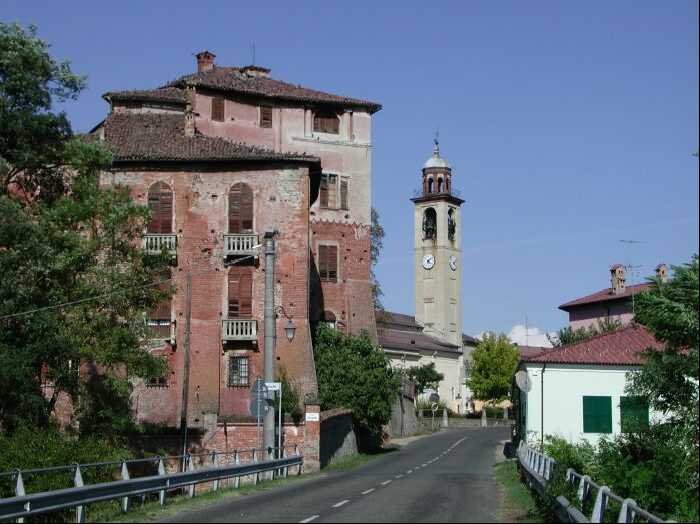 |
|
|
|
|
|
BASALUZZO
C.A.P .: 15060 - Tel. Code: 0143 Altitude: 149 m s.l.m.
Population: 1710 (about 2000) in Summer
Town Hall: Via Nuova 1 - tel. 48107-48370
Distance from Gavi: about 15 minutes by car
|
|
|
|
|
|
Further down towards the influx of the river Lemme
into the river Orba, last village on its right bank is Basaluzzo; The
town center is still slightly raised above the plains, while the suburbs
of the west are already part of the plain. The first historical city of
Basaluzzo village presumably dates back to the first millennium B. C.
builded by Ligurian peoples back from Spain because hunted by the Celts
and installed in the valley between the Orba and the Lemme. Conquered by
the Romans was assigned to the district Gamundium, at present
Castellazzo Bormida.
|
|
|
|
|
|
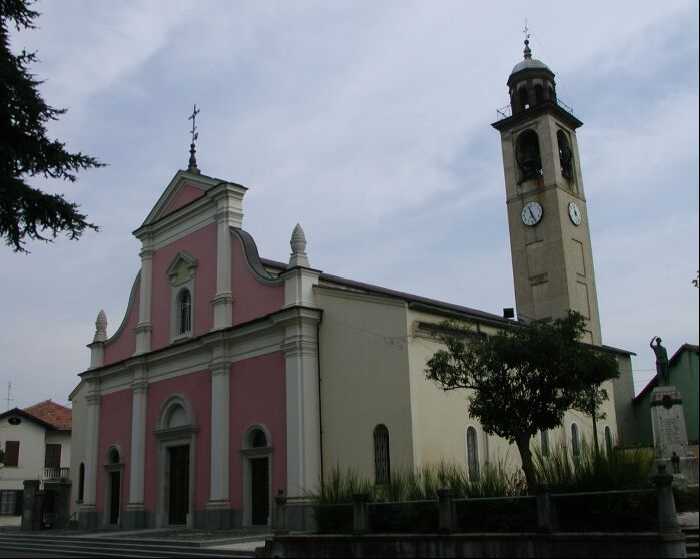 |
|
|
|
|
|
Were the Romans who gave the village the name from
which the current name, calling it "Bis.Lucus", that means: "that forest
land located between two woods".
After the fall of the Roman Empire began Christianity. In the year 477
A.C. is invaded by invasions barbarous Goths, Huns, Visigoths and
finally the Carolingians. Its lands were donated by Emperor Odone III,
with diploma of the year 1000, so the abbots of San Salvatore di Pavia,
becoming their feud. In 1155 descend in Italy Frederick II said
Barbarossa that occupied militarily the town. The countries
belonging to the Gamundium, tired of the constant invasions of foreign
peoples gather together it happens so the birth of Alessandria.
Basaluzzo follows, for a certain period of time, the historical events.
In fact, around the year 1316 because of the fight between Guelphs and
Ghibellines, both Basaluzzo and Alexandria are absorbed by the
Duchy of Milan first under the Visconti and then under the Sforza that
transform Basaluzzo in Feud together with Castelspina which is then sold
to Pier Francesco Visconte in 1945 . The feud goes several times owned,
until in 1634 passes to Agapito Grillo future Duke of Mandrogne.
Interested in the war Franco Sarda until 1659 when a truce between the
warring crowns of France and Spain, assigns it to the Spaniards until
1700. |
|
|
|
|
|
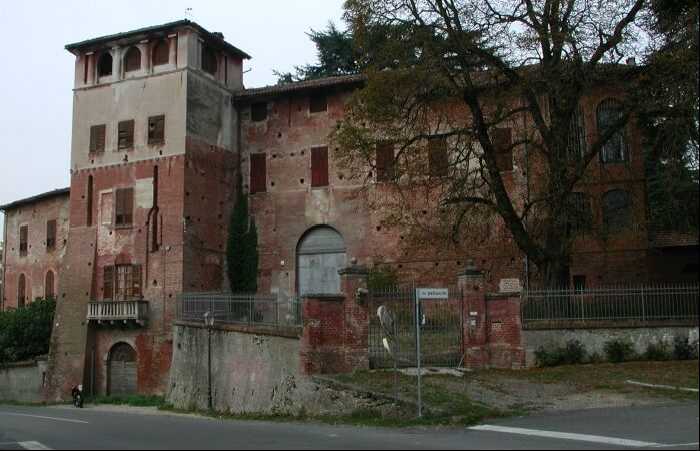 |
|
|
|
|
|
With the death of Charles II of Spain on 1 November
1701 in Italy ceases Spanish domination. Successor of Charles II's
Filippo Barbone, Duke of Anjou, nephew of the king of France, the French
rule last until 1706 when Vittorio Amedeo II and Pietro Micca expelled
the French from the Duchy of Milan and consequently to all the lands he
belonged. After 4 months of Austrian domination Basaluzzo went to
Vittorio Amedeo II Duke of Savoy, was the 'March 8, 1706. |
|
|
|
|
|
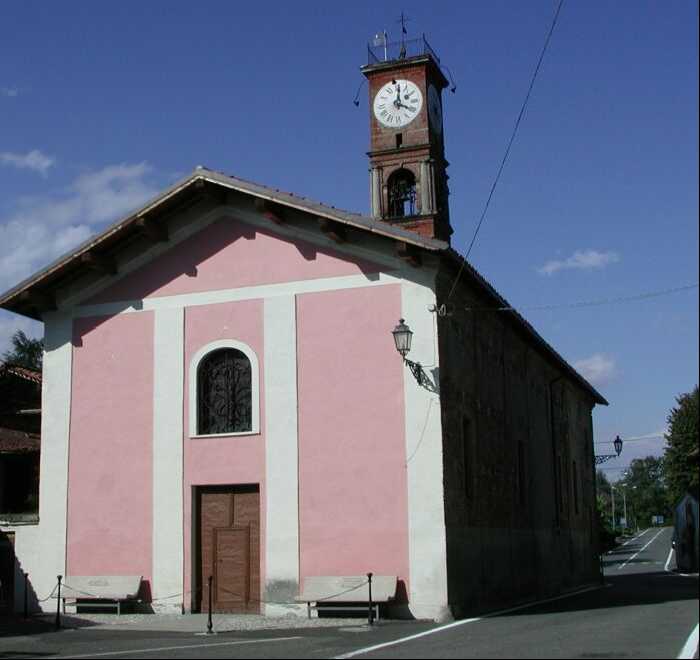 |
|
|
|
|
|
In 1745 during the Austrian War of Succession
Basaluzzo hosts the Spanish army to the ire of the Astro-Sardinian
troops. With the peace of Aachen in 1748, the country goes to the
Kingdom of Sardinia. The truce lasts until 1796 when Napoleone
Buonaparte came to Italy for a military campaign against the Austrians,
by staying in the Convent of Santa Croce in Bosco Marengo and forcing
neighboring countries to contribute to military spending. Basaluzzo from
July 1798 is part of the French Republic even as Russia, England,
Austria and Turkey declare war to France. The most important military
events of the war had as its theater Basaluzzo, where August 15, 1799,
French troops under the command of General Joubert face the Astro
Russian troops. The battle proved to be a disaster for both factions,
General Joubert died on the field, and the French troops lost the battle.
Napoleone Buonaparte was not the man who accepts to be defeated, so in
1800 descended into Italy and defeated the enemy by Marengo. Basaluzzo
was part of the Department of Marengo stayed for four years under the
Republican government, and 10 years under the reign of Napoleon. |
|
|
|
|
|
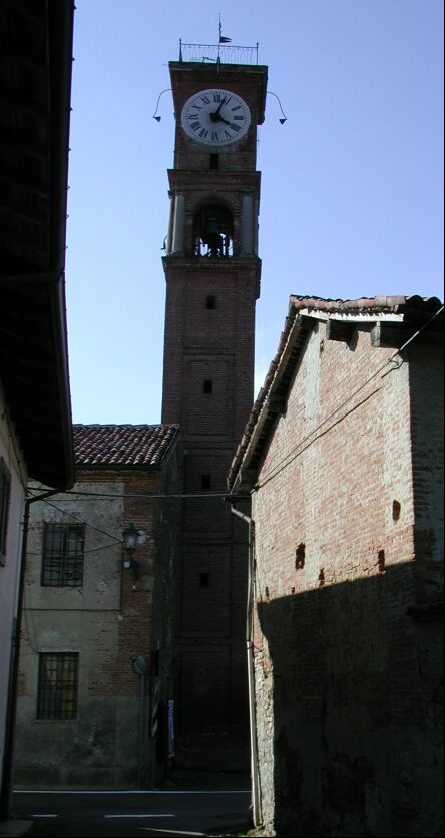 |
|
|
 |
|
|
Ceased in Italy the French domination, it was 1814,
the territory was again annexed to the Kingdom of Sardinia under which
it remained until 1847. Basaluzzo follows the events of the wars of
Italian independence and from 1870 became a municipality governed by a
mayor who was an official of the central authority responsible for the
execution of tasks and orders on behalf of this, together with the City
Council and the government control. The citizens of Basalt participated
in the subsequent historical events that, at the cost of human and
economic sacrifices, made Italy a free and democratic country.
Trascritto da "La Valle
del Lemme" di G.Meriana e C.Manzitti SAGEP EDITRICE (GE
Traduzione: Elidio
|
|